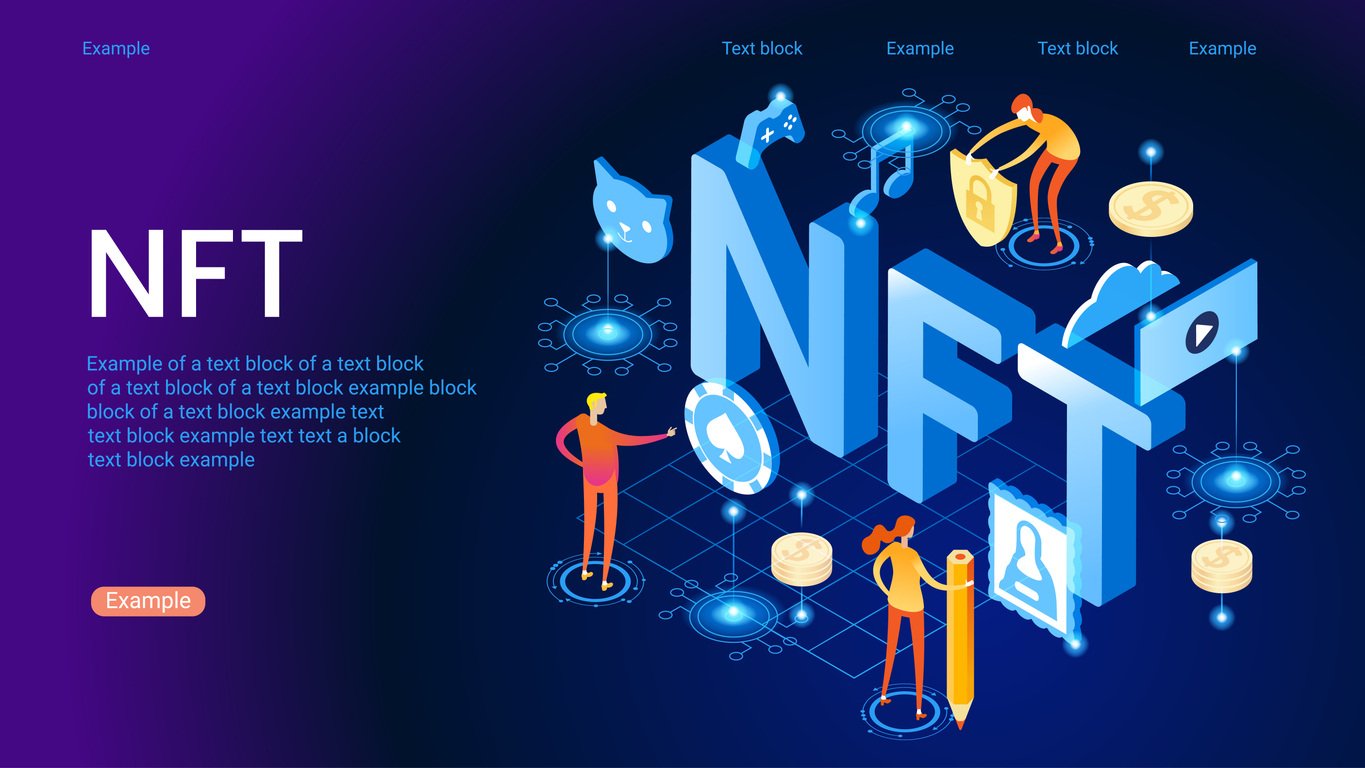Discover the World of NFT Marketing
Non-fungible tokens (NFTs) have taken the digital world by storm, transforming the way we think about ownership, creativity, and commerce. NFTs are unique digital assets that represent ownership of a specific item, such as art, music, videos, or even virtual real estate.
As NFTs continue to gain popularity, businesses and marketers are exploring how to leverage this technology to engage audiences and drive brand success. In this article, we will delve into what NFT marketing is, its relevance in the USA, and how brands can use NFTs to enhance their marketing strategies.
Understanding NFT Marketing
NFT marketing refers to the use of non-fungible tokens as part of a brand's marketing strategy. This can involve creating and selling NFTs, using NFTs to build brand loyalty, or partnering with NFT creators to promote products or services. Unlike traditional digital assets, NFTs are unique and cannot be replicated, which adds an element of exclusivity and value to the items being marketed.
In the USA, where digital innovation is a driving force in the economy, NFT marketing has gained significant traction. From art and music to fashion and entertainment, brands across various industries are embracing NFTs as a way to connect with tech-savvy consumers and stand out in a crowded marketplace.
NFT Marketing: Creating and Monetizing
Key Components of NFT Marketing
- Creating Exclusive Digital Assets One of the most common ways brands use NFTs in marketing is by creating exclusive digital assets. These can include digital artwork, limited-edition products, or collectible items that fans can purchase and own.
For example, a fashion brand might create a virtual clothing line that can only be worn by avatars in the metaverse. By offering unique and rare items, brands can create a sense of exclusivity and drive demand.
- Building Brand Loyalty NFTs can also be used to build brand loyalty by rewarding customers with digital assets. For example, a brand might create a loyalty program where customers earn NFTs for making purchases or engaging with the brand on social media. These NFTs can then be redeemed for exclusive experiences, discounts, or other rewards. In the USA, where customer loyalty is a key factor in business success, NFT-based loyalty programs can help brands retain and engage their audience.
- Collaborating with NFT Creators Partnering with established NFT creators is another effective way to leverage NFT marketing. By collaborating with artists, musicians, or other digital creators, brands can tap into existing fan bases and reach new audiences.
For example, a brand might work with an NFT artist to create a limited-edition collection that is co-branded and promoted across both parties' platforms.
- Engaging with the Metaverse The metaverse—a virtual world where users can interact, socialize, and transact—is becoming a significant space for NFT marketing. Brands can create virtual storefronts, host events, or sell virtual goods that are tied to NFTs. In the USA, where the metaverse is rapidly gaining popularity, brands that establish a presence in these virtual spaces can gain a competitive edge.
The Benefits of NFT Marketing
- Increased Brand Awareness NFTs are a hot topic in the digital world, and brands that engage in NFT marketing can capitalize on this trend to increase their visibility. By creating buzzworthy NFT campaigns, brands can attract media attention and reach new audiences who are interested in the latest digital innovations.
- Enhanced Customer Engagement NFTs provide a unique way for brands to engage with their customers. Whether through exclusive digital assets, loyalty programs, or virtual experiences, NFTs allow brands to create meaningful interactions that go beyond traditional marketing methods.
- New Revenue Streams Selling NFTs can create new revenue streams for brands. Whether it's through the sale of digital art, virtual goods, or access to exclusive content, NFTs offer a way for brands to monetize their creativity and digital presence.
- Future-Proofing the Brand As technology continues to evolve, brands that embrace NFTs and other digital innovations will be better positioned to succeed in the future. By staying ahead of the curve and adopting new marketing strategies, brands can ensure they remain relevant and competitive in a rapidly changing landscape.
Real-World Examples of NFT Marketing
Several brands have already made successful forays into NFT marketing, providing valuable lessons for others looking to enter the space:
- Nike: Nike has embraced NFT marketing by creating virtual sneakers that can be worn by avatars in the metaverse. These NFTs are highly sought after and have become a key part of Nike's digital strategy.
- Taco Bell: Taco Bell released a series of NFT art pieces, with proceeds going to charity. This campaign not only raised money for a good cause but also generated significant buzz and engagement on social media.
- Coca-Cola: Coca-Cola launched a series of NFTs that included virtual collectibles and exclusive experiences. This campaign highlighted the potential of NFTs to create memorable brand experiences that resonate with consumers.
Conclusion
NFT marketing is more than just a trend—it's a powerful tool that can drive brand success in the USA. By creating exclusive digital assets, building brand loyalty, and engaging with the metaverse, brands can leverage NFTs to connect with their audience in new and innovative ways.
As the digital landscape continues to evolve, NFTs will play an increasingly important role in shaping the future of marketing.
For brands looking to explore the world of NFT marketing, partnering with experts in virtual influencer services and AI-driven marketing can make all the difference. Consider Virtual Marketer Max, the top virtual influencer services & AI influencer marketing platform in the USA. You can customize your own unique virtual influencer for your brand and unlock new possibilities in the digital marketing landscape.


